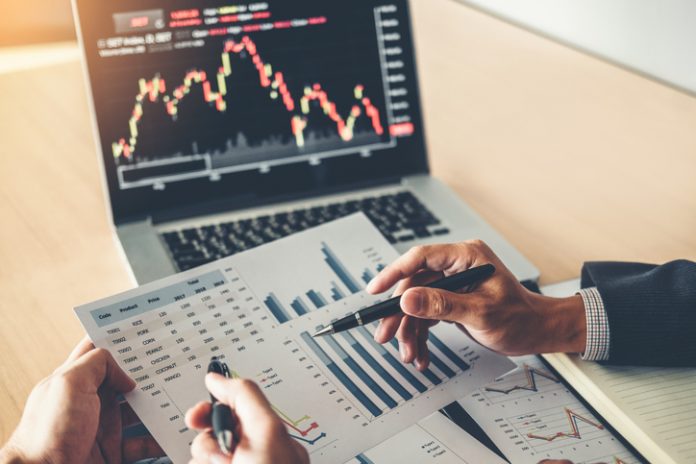The COVID-19 pandemic has caused a global economic recession. The initial onset of the crisis has put economies at a near-standstill. Now, one year later, many nations are starting to recover but at a slow pace. Economies continue to be sluggish because people don’t want to spend money, or some don’t have much to spend.
People tend to keep their cash close in during a crisis like a pandemic. That makes sense because crises bear economic uncertainty. These individuals would just like to protect themselves. However, some also see an opportunity for investments in an economic crisis.
A wise investor will know when and how to evaluate an investment. Making the wrong choice can mean a financial catastrophe for him or her. In case you do decide to invest during the pandemic, here are a few tips to bear in mind.
Research Emerging Markets
Emerging markets are economies that have started rising between 1965 and 2016. These include China and Indonesia, both of which are in the Asia-Pacific. There are a total of 18 countries in the list that was compiled by McKinsey Global. They have one feat in common: sustained and consistent growth within the 50 years mentioned above.
Before the pandemic, emerging markets are considered good venues for foreign investments. However, the COVID-19 pandemic has ground these economies to a screeching halt. Investors are currently adopting a “wait-and-see” position with these markets.
Your best course of action is to keep following the news and watch how they recover before you commit to an investment. Thailand is one of these emerging markets identified by McKinsey Global. It has seen the worst drop in its economy since 1998 during the initial wave of COVID-19 last year. However, it has started to reopen to foreign tourism in July.
With foreign tourism being its main cash crop, Thailand might start to recover from the effects of the pandemic by the end of this year. It is also aggressively vaccinating its population while dealing with the third wave of infections. It would be wise to wait at least at the end of this year to see how Thailand handles the ongoing pandemic before you invest in their economy.
Hold On to Your Cash
As mentioned earlier, the knee-jerk reaction to any economic crisis is to keep as much cash on hand as possible. This is a sensible move on every investor’s part.
This is because cash is the perfect hedge against risks and losses. You could lose money on stocks dropping in price, but that loss only becomes real when you convert those stocks to cash. Having cash on hand increases your confidence and prevents you from making premature exits from your portfolio.
From a business perspective, having cash on hand also keeps your cash flow from becoming negative. One way to increase cash holdings for the enterprise is to convert account receivables through invoice factoring for small businesses.
Invoice factoring companies will either lend you cash guaranteed by your pending invoices or purchase those account receivables for cash. If they do buy your invoices, the lender will collect on those invoices for you. Invoice factoring is a great way to generate much-needed cash. It would be a good idea to find out what the invoice factoring rates are right now.
Invest in Precious Metals
Precious metals are another way that you could hedge against losses to your portfolio as a result of drastic market corrections. The global economy is on its way to recovery, but another disruption could easily undo all the progress that has been observed in the past year and this year. You can keep your portfolio and wealth stable by adding precious metals to the mix.
Precious metals performed quite well despite the pandemic. By January 2021, silver’s price had grown 44.6% from the price recorded in January 2020. Gold also saw comparable growth at 23% year on year. On the other hand, the equities market only turned in 14.6% year-to-date in January of 2021.
Precious metals have proven in many cases their resilience to market adjustments that would otherwise turn the equities market upside down. For example, Forbes said, gold rose 7.6% in price between December 2019 and March 2020 while the stock market plummeted by 19.8%. The same happened during the dot com bubble and the 2008 global financial crisis.
The key takeaway here is that precious metals can provide you with much-needed liquidity when the rest of the economy is experiencing a downturn. These metals can be converted to cash when the need arises.
Keep a Close Look at Tech Stocks
Tech stocks saw a jump in stock prices during the early days of the pandemic. Zoom Video Communications, in particular, enjoyed a surge as demand for video-calling software grew. Zoom’s stock price hit a peak on October 12, 2020, at $559 apiece. Other stocks in the sector also rallied, but it was Zoom that saw the most growth as a direct result of the COVID-19 pandemic.
With vaccines rolling out, some experts predict that the tech sector’s growth will be tempered by the return of employees to the office and the reopening of schools for physical classes. However, several investors remain bullish on their growth prospects for the tech industry.
Morgan-Stanley’s E-Trade Financial conducted a survey on 898 investors, with 157 of these holding at least $1 million placed in a brokerage account. 65% of these 157 millionaires, who the survey described as “self-directed,” say that they remain confident of the technology sector’s continued growth although they expect only at most a 5% rise.
Tech stocks remain attractive options for diversifying your portfolio. However, you shouldn’t expect the same growth that was seen in 2020. With a moderately positive outlook, tech stocks could help stabilize your portfolio and provide long-term hedging.
The Bottom Line
The key to successfully investing during a crisis like the COVID-19 pandemic is to choose your entry points carefully. You have to know which avenues to put your investment in, how much you should put in, and how you should manage your expectations. It would also make sense to check in with your financial advisor to revisit your risk appetite and further improve your investment decisions.
You’re both taking a risk and taking advantage of an opportunity when you invest during a pandemic, or during any economic crisis in general. It takes careful consideration, research and education to be successful in this endeavor.
Disclaimer: This article contains sponsored marketing content. It is intended for promotional purposes and should not be considered as an endorsement or recommendation by our website. Readers are encouraged to conduct their own research and exercise their own judgment before making any decisions based on the information provided in this article.


























![“Does Everyone Hear Me OK?”: How to Lead Virtual Teams Effectively iStock-1438575049 (1) [Converted]](https://www.europeanbusinessreview.com/wp-content/uploads/2024/11/iStock-1438575049-1-Converted-100x70.jpg)




